Being biracial has never been portrayed by society as “normal”; growing up in a predominately white town made being biracial feel like a burden. I have grown up with quite the stereotypical mixed-child life. I have a white mom and a black dad; I have no father figure in my life, and I live with my mom’s parents. Being raised by someone other than my parents has always been difficult for me to grasp. Why did I not have a normal two-parent household full of love? Why is my hair not straight and blonde like all my friends? Why do I have a broken family with a drugged-up dad who’s never been there? Why can’t I just be a normal kid with a normal family? As I have grown up, I still struggle to answer those questions, but I feel like it’s my story of growth and acceptance that I will forever be striving towards.
From Kindergarten, I noticed that all of the kids had their mom and dad dropping them off at school, and the little boy/girl got a big hug and kiss before being sent off on their journey. I was being dropped off by my grandma with a hug and a kiss. It didn’t feel normal, little did I know none of it was normal.
Birthday parties were always what I like to call a train wreck because my white side of the family was on one side of the room, and my black side was on the other. Rarely did the two interact with each other. Not only that, but the step-grandparents were always there with their own kids, which caused a trainwreck in itself. My dad was never there either, and I can one hundred percent say that with my dad in and out of prison my entire life, it really messed with my brain.
I didn’t know why I couldn’t have someone in my life who truly knew me, someone that I could confide in during hard times. We all know that hard times come and go, and sometimes all you need is a good hug. It’s affected how I see men in general. Truth be told, I know I should see my dad in a different light because, as my mama always says, “It’s just how he’s coping with your aunt’s death and he was a good person and he loves you so much.” It’s just truly hard for me to believe such a thing when all I have seen is failure after failure, so I never have seen where she is coming from or how she can see a possibility of anything getting better.
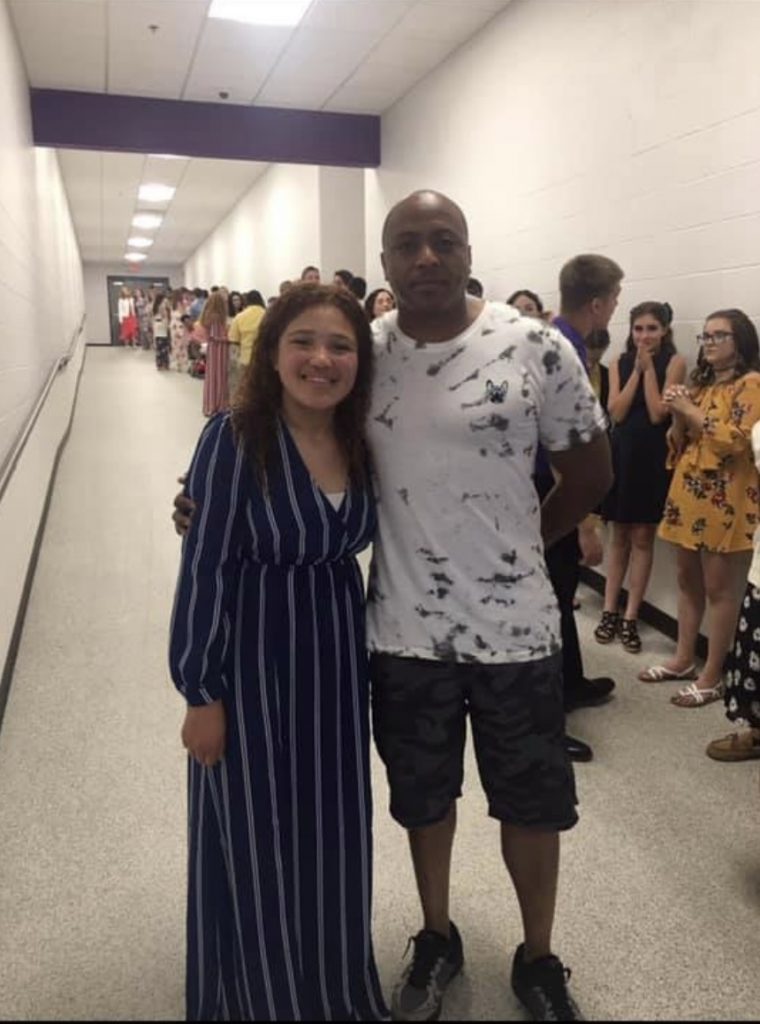
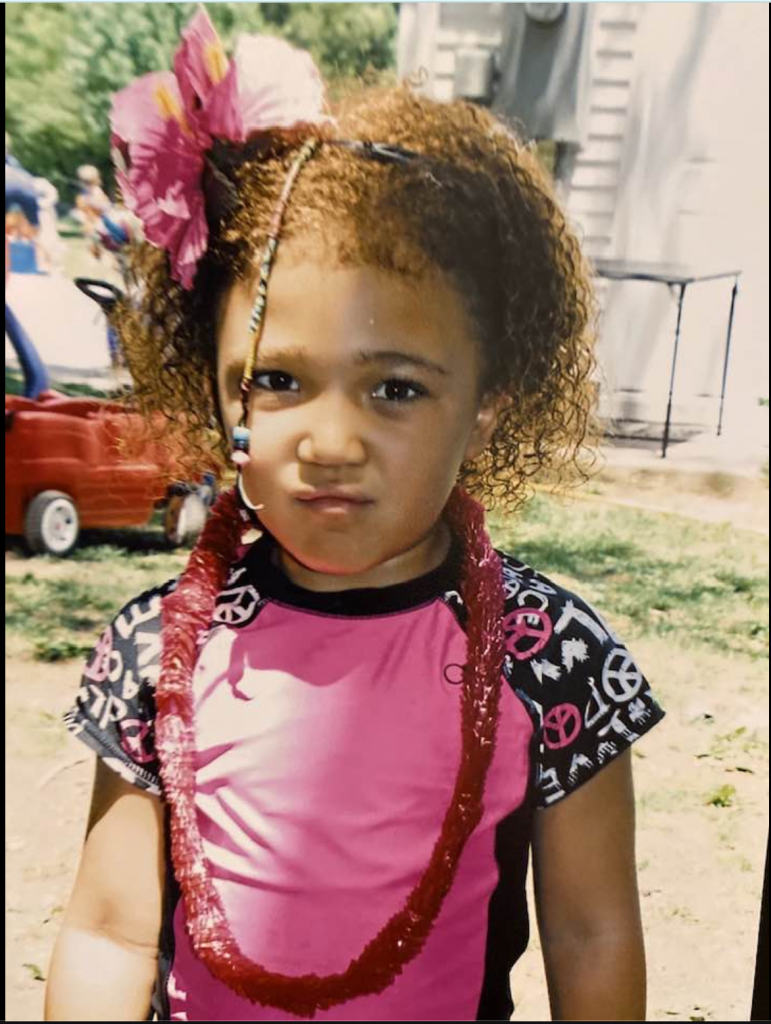
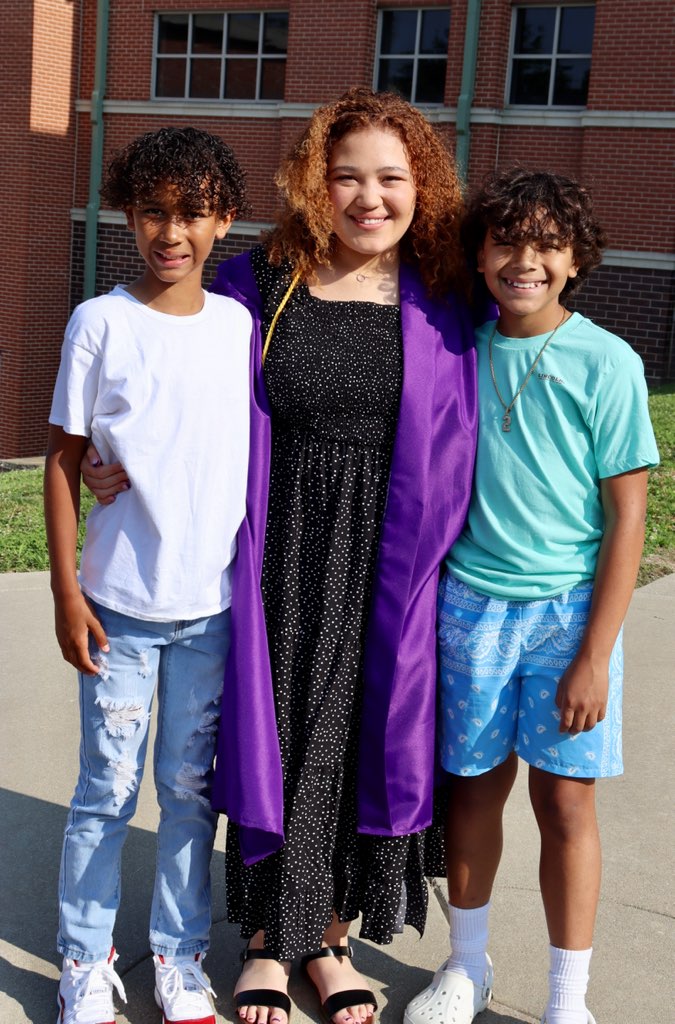
As I got older, I began to realize that most kids thought it was odd that I didn’t live with my parents or my siblings. “You have siblings? Where are they? Oh, you don’t live with them, that’s kind of weird.” My brothers and sister are a staple part of who I am because they make me want to be a role model for them. If I were truly an only child, I wouldn’t have any drive to do anything or have any goals for myself. They have the same drug dad story; they most likely don’t understand where he’s at and why he’s there. That’s the hard part about being the oldest because I never want it to be my place to be the one who must explain that like my mom explained it to me. My mom is my true superhero, she made me love myself, and my hair especially.
My hair has always been what made me, me. It is what makes me unique. The journey of learning to love my hair has taken a long time and is still a major work in progress. Curly hair is no simple task to conquer. As I grew up in a predominantly white school, all my friends had straight hair that they would put up in long, flowing ponytails, and I, on the other hand, had a puff ball, which was what I called a ponytail. It took a long time for me to try and understand that I didn’t look like them and that my hair was “fun to touch”, and it was “bouncy”. I never understood why, for picture day, I could only wear my hair down. Boy, when I did, I got all of the stares from everyone that walked past. Funny looks to smiles even to cold hard R.B.F. stares. I hated wearing my hair down. It made me stand out, and not in a good way. I always wore it up to school because wearing my hair up was my safe option. Over the years, I have found the uniqueness in my hair and have learned to love it.
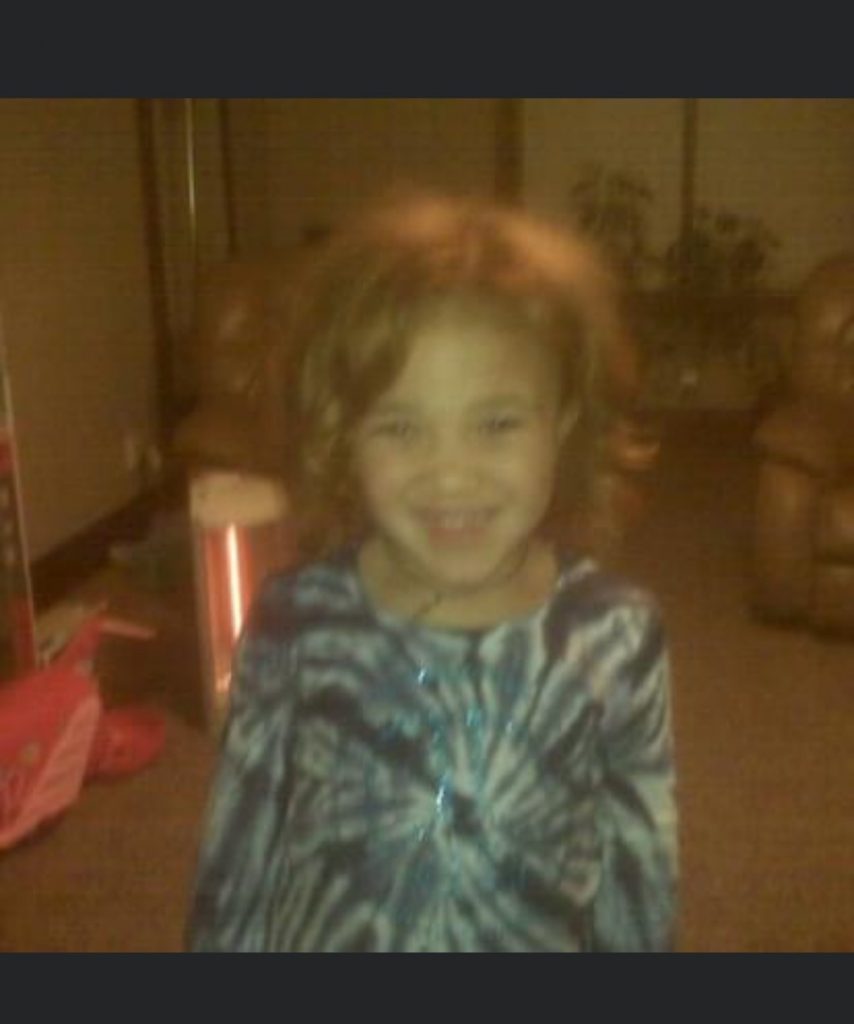
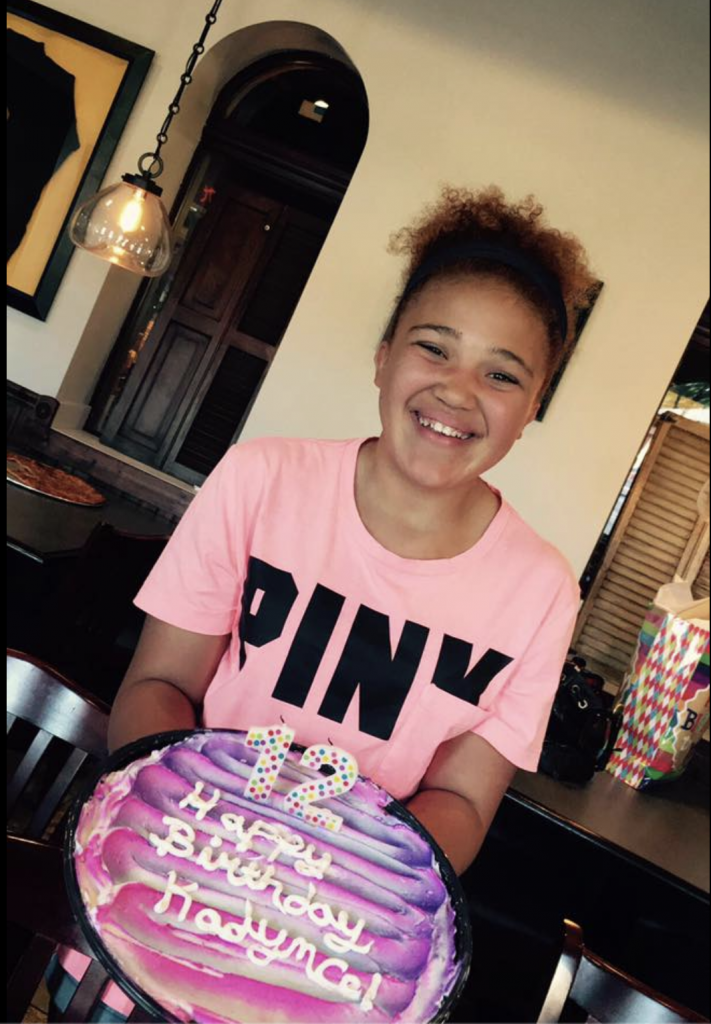
Not being raised in a two-parent household changed how I saw the world and how I ultimately perceive other people. Most people assume that I live with a mom and dad, but when you tell them that you don’t, they get confused. At Parent/Teacher conferences, teachers were always open to the idea of me not living with my parents, but I could feel the judgment from my classmates when I had class performances, and my dad was never there. It made me not fit into everyone else’s idea of a mixed girl, but I learned to love my uniqueness.
I have never conformed to the typical “mixed girl” stereotypes, and I have had to adjust those qualities to fit me. I should have always been the one trying to change the stereotypes and qualities instead of changing myself to fit those qualities. I have finally realized that in society, there is no “normal,” even if there is a majority look. It is okay to not be what society calls “normal” and it’s okay to also not fit into what society calls “pretty,” because beauty comes in a range of shapes, colors, and sizes. It took me a long time to grasp that concept. I don’t even fit into the normal way of raising a child, and that’s okay. Ultimately, in life, I’ve found other mixed kids who have gone through similar situations. Finding people who have similar stories has made me comfortable in my own skin and helped me grow and flourish in my uniqueness.